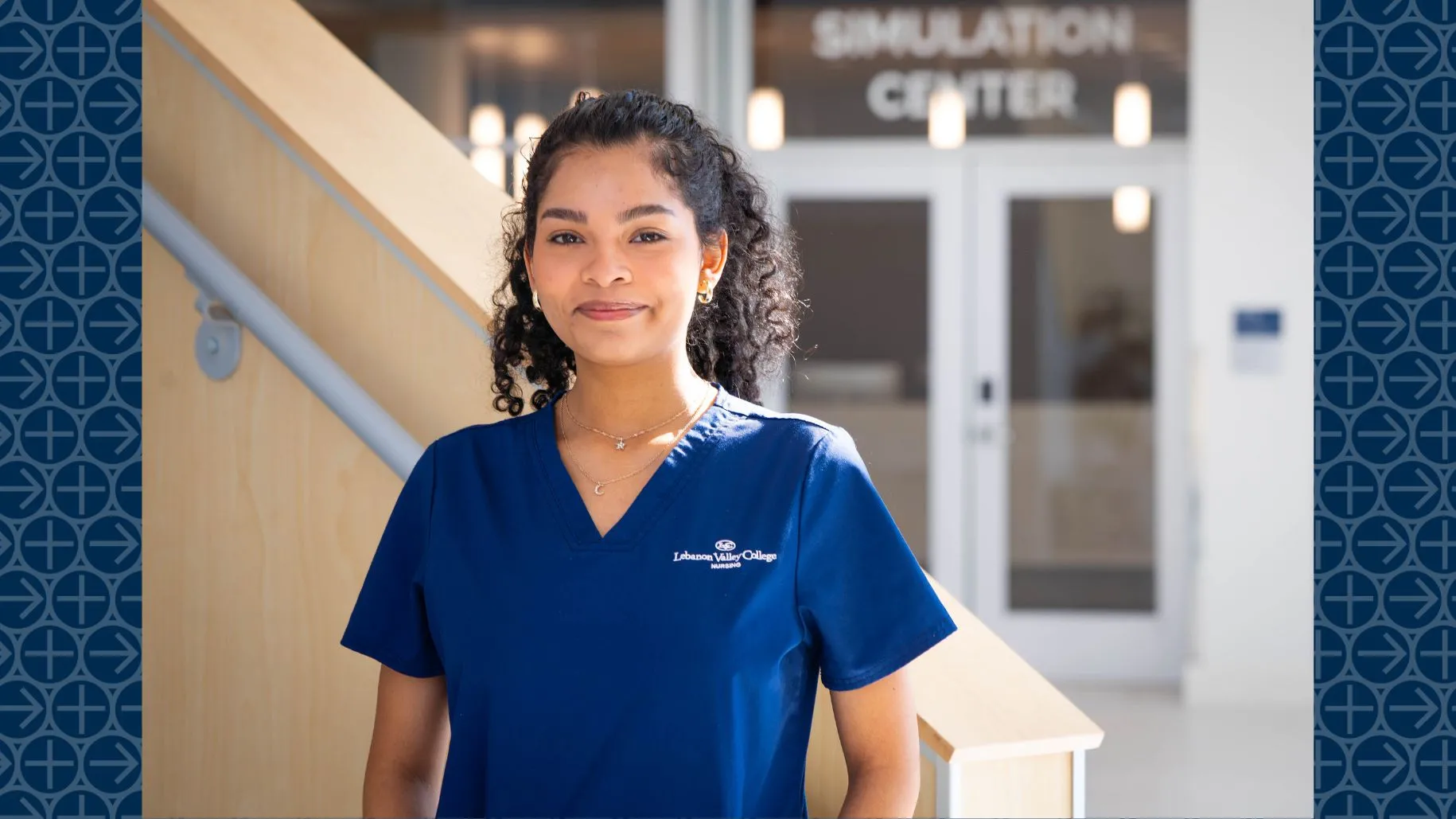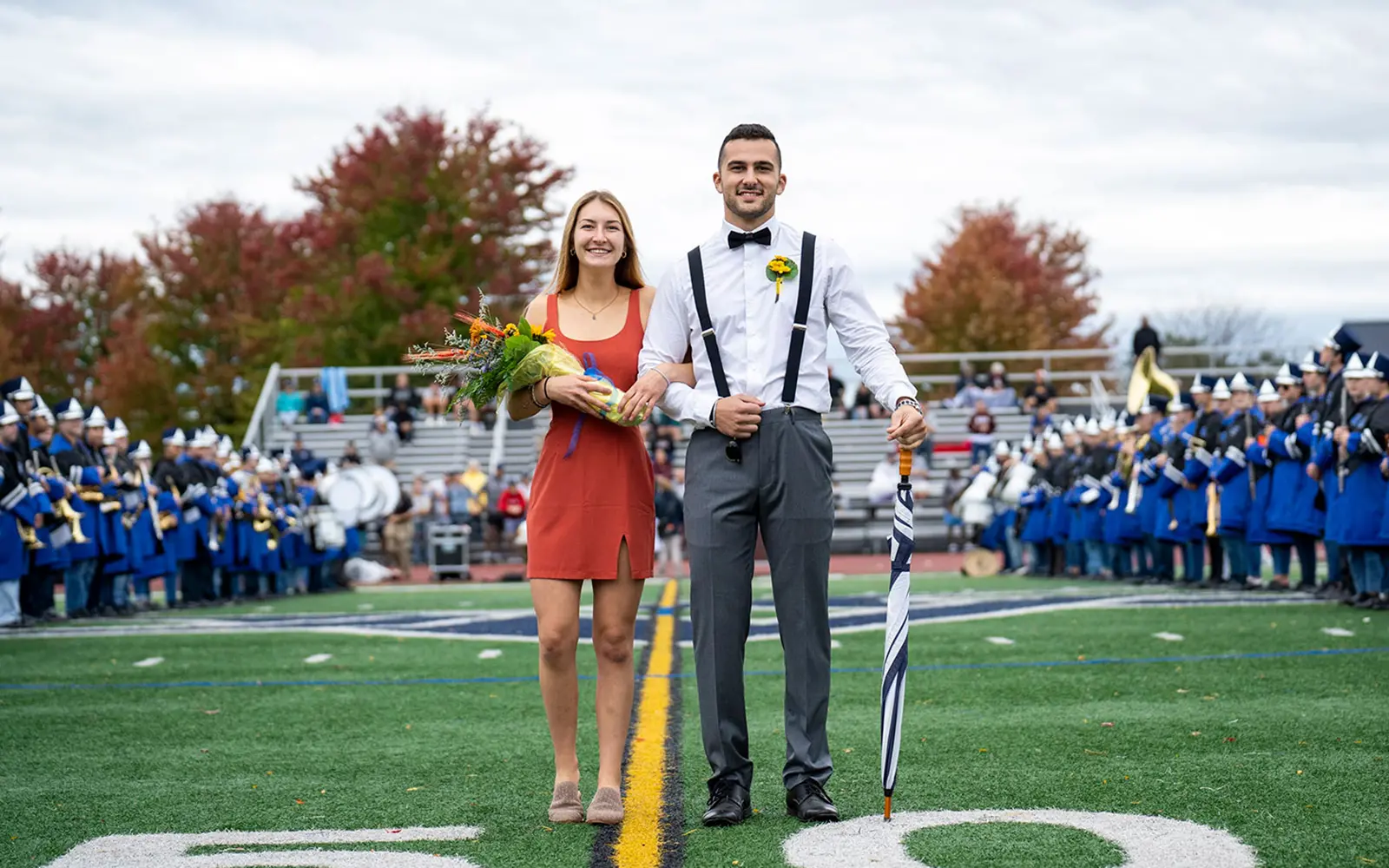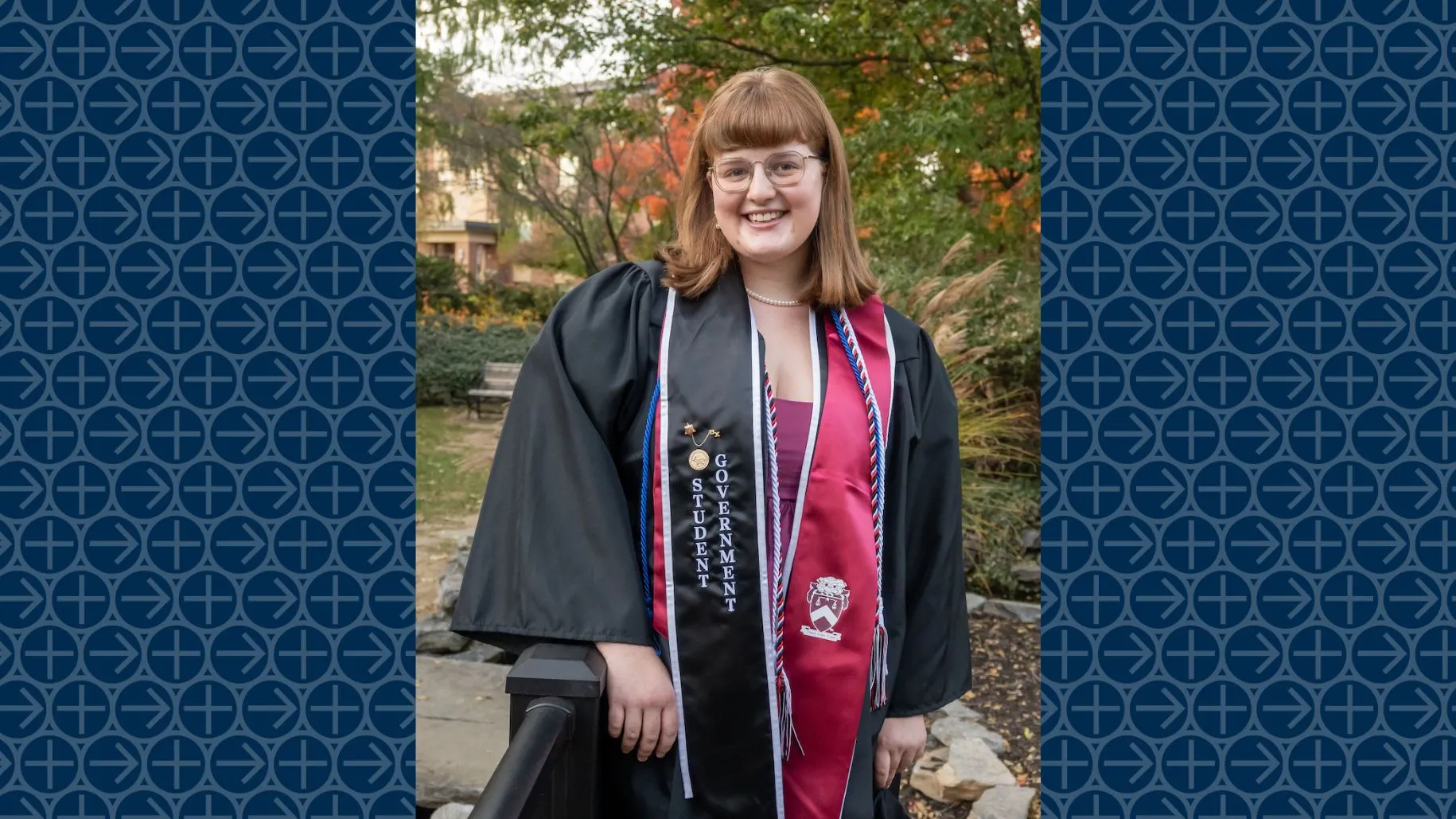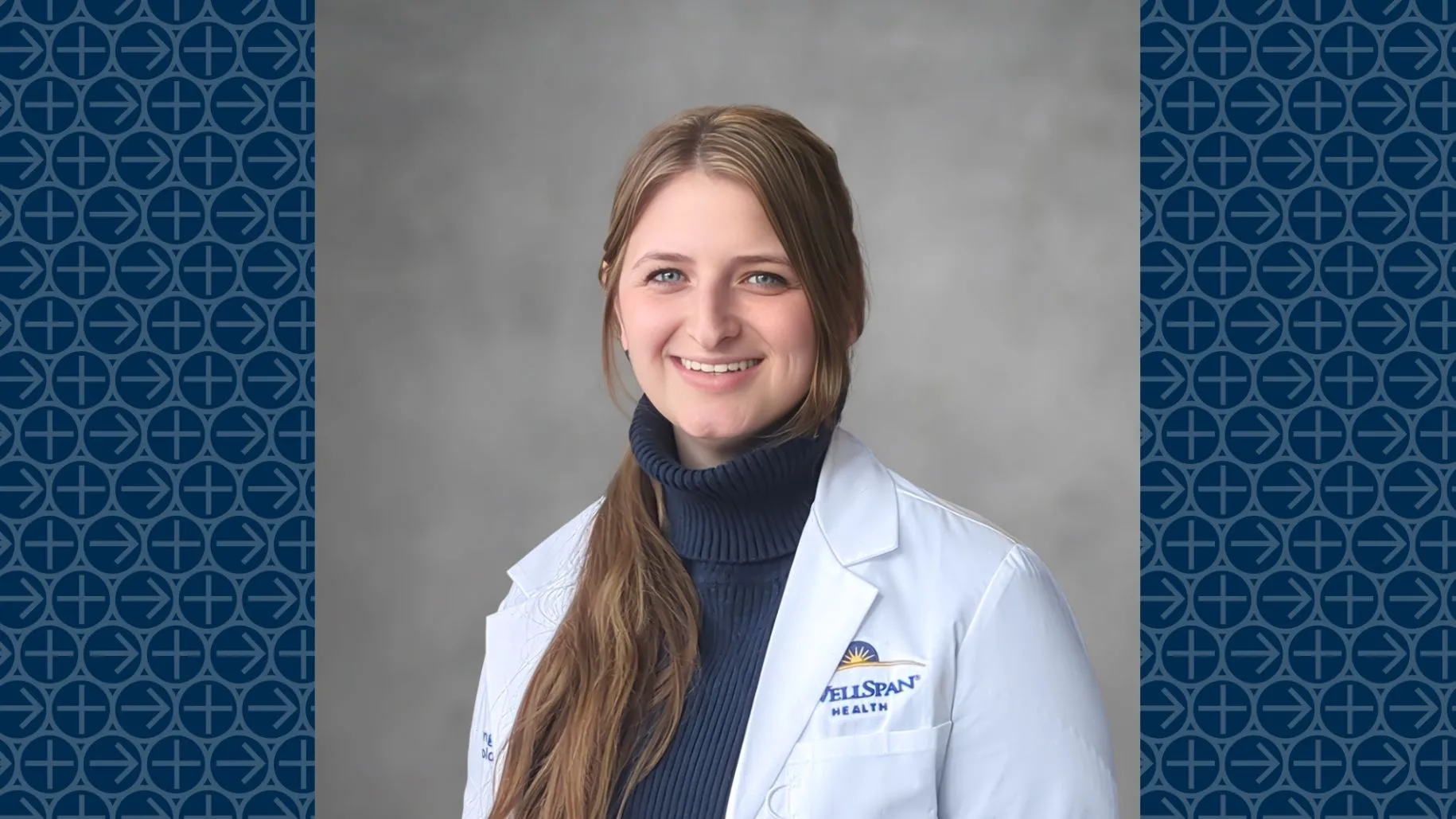
LVC News
- Accounting
- Accounting/MBA 3+1
- Actuarial Science
- Allwein Scholars
- Alumni Profiles
- Athletic Training
- Athletics
- Awards
- Biochemistry & Molecular Biology
- Biology
- Breen Center
- Business Administration
- Campus
- Chemistry
- Clinical Exercise Physiology
- Clinical Mental Health Counseling
- Community Service
- Computer Science
- Creative Arts
- Creative Writing
- Criminal Justice
- Data Science
- Digital Media
- Economics
- Education
- Engineering
- English
- Environmental Science
- Esports
- Exercise Science
- Faculty Profiles
- Gallery
- German
- Giving
- Graduate Studies
- History
- Honors
- Intelligence and Cybersecurity
- Interaction Design
- International Business and Policy
- LVEP
- Marketing
- Mathematics
- MBA
- Medical Humanities
- Medical Laboratory Science
- Music
- Music Education
- Music Production
- Neuroscience
- Nursing
- Physical Therapy
- Physics
- Political Science
- Pre-Law
- Pre-Medical Professions
- Psychology
- Self-Designed
- Social Justice and Civic Engagement
- Sociology
- Spanish
- Speech-Language Pathology
- Sport Performance
- STEM Education
- Student Profiles
- Study Abroad
- Sustainability
- Transfer
- Undecided/Exploratory
How LVC Prepared Me for Medical School Success

Erica Werner ’22, one of LVC’s prestigious Allwein Scholars, graduated with a bachelor’s degree in Neuroscience and a minor in Applied Spanish for Health Care Professionals. She is pursuing her M.D. at the University of Toledo College of Medicine and Life Sciences. Werner talked with us about her key life and LVC experiences that have led her to where she is today.
How did you decide on neuroscience as a major?
My choice to major in Neuroscience was quite personal. As a child, I lost my grandfather to complications of Alzheimer’s Disease. I was young and couldn’t help but wonder why he forgot my name, who my parents were, or where he was. His experience sparked a curiosity in my naive mind; throughout middle school and high school I read books about memory and the brain. Choosing to major in neuroscience was the perfect next step to continue following this passion.
What first sparked your interest in medicine?
During my sophomore and junior years at LVC, I shadowed physicians ranging from orthopedic surgeons to volunteer primary care doctors at the Lebanon Free Clinic. I saw first-hand the incredible, lasting impact physicians have on both the mental and physical well-being of their patients. Their compassion, knowledge, and empathy for others was inspiring.
What are some of the specific ways that LVC prepared you for medical school?
From the supportive faculty to the challenging classes, LVC was an incredible place to get ready for medical school. A large part of preparing oneself for any post-bac program is being willing to push yourself past your comfort zone. LVC gave me the encouragement and opportunities to go beyond what I thought I could achieve, allowing me to grow as both a student and an individual.
One of the most valuable LVC experiences was my role as a study pod leader. I hosted General Biology study pods for three years, which gave me a strong foundation of knowledge for medical school and the Medical College Admission Test (MCAT). My time as a study pod leader and First-Year Mentor helped me develop leadership skills and experience that qualified me for multiple executive board and mentor positions in medical school.
I was fortunate to do four years of research at LVC, starting the summer before my first year through the Research First program. Each summer, I stayed on campus to complete my project. Research not only strengthens your medical school application, but it also gives you a unique skillset and ability to appreciate scientific literature. Research at The Valley shaped my career goals and introduced me to a lifelong mentor, Dr. Erica Unger. I am forever grateful for her support (and our trips to the Whirling Dervish for coffee…highly recommend). She was a crucial part of my LVC experience. I am a better person and student thanks to her guidance and encouragement.
I think it is important—and often neglected—to devote time to your non-academic passions. Personally, I find joy in community service and being active (volleyball, lifting weights, hiking, etc.). I spent years at LVC serving with Jennifer Liedtka [coordinator of service and volunteerism]. I had the opportunity to teach reading skills to homeless children, serve at a food pantry, volunteer at a local free clinic, and travel to Peru for a mission trip. While these experiences do not give you textbook “medical knowledge,” they are essential to being human, to forming personal connections and gaining a deeper appreciation for life.
What have been some of the highlights of your first med school year?
This first year has flown by. In retrospect, it is truly incredible to think about how much I have grown and developed. I entered medical school with hopes of continuing my passions: volunteerism and promoting wellness through exercise. In a short seven months, I’ve joined the executive board for Students for Medical Missions and the Sports Medicine club. I’ve devoted hours to packing supplies for medical missions and serving as a Spanish interpreter at the largest student-run free clinic in the United States, the Community Care Clinic of the University of Toledo College of Medicine and Life Sciences (UTCOMLS). I’m volunteering alongside a local physician to provide mentorship to Ukrainian refugee girls through a non-profit volleyball program. I’ve joined intramural sports teams and attended workshops to learn skills such as ultrasound and lumbar puncture. I’ve even had the chance to shadow sideline medical coverage for a local high school football team. Most importantly, I’ve made lifelong connections with amazing classmates and mentors and have become even more excited for my future career as a physician. In one short year, I feel as though I’ve found my niche in medicine; I cannot wait to see what the rest of my educational and professional career has in store.
What are your future goals as you look ahead in your program and to your career?
During and after medical school, I hope to continue serving my community with the new knowledge and skills I’ve gained. There is endless need for healthcare services, both locally and abroad. I will continue to do my part filling gaps in care through volunteering at free clinics, food banks, and medical mission organizations. Further, I hope to encourage young children to reach their full potential through connecting healthcare professionals with low-income schools. My current project is a collaboration between UTCOMLS and a local elementary school, giving students the opportunity to interact with health professions and learn about our careers. I am coordinating with the school to host weekly wellness activities to promote physical and psychological well-being for these children. My hope is to connect healthcare workers with their community, to form a more compassionate and personal relationship with those for whom we provide care.
From an academic perspective, my goal is to become a physician specialized in Physical Medicine and Rehabilitation. This is a growing, collaborative field focused on enhancing and restoring function to those living with various injuries or disabilities. This profession cares for a diverse patient population, ranging from those with spinal cord injuries and neurodegenerative diseases to professional athletes. I have a few years to choose a specialty. Even if I change my mind (as I have before), I aspire to find a career that is fulfilling, challenging, and allows me to create meaningful change in my patients’ lives.
What advice would you give to other students considering this career path?
The biggest piece of advice I can offer to pre-med students is to take advantage of every opportunity to learn and grow. Being uncomfortable, stressed, and unsure of yourself is part of the process. It is okay to feel like you’re lost, like you’re not as experienced or knowledgeable as those around you. The most important thing you can do is set your eyes on a specific goal and work as hard as you can to reach it. Seek out a solid support system, welcome failure and use it as an opportunity to learn. You will never regret working hard to achieve your dreams.
With that being said, it is so crucial to enjoy the present moment and the process of reaching your goals. Celebrate the small wins, whether that’s finding your first mentor, joining your first research group, or discovering a passion that brings you joy. These are all important pieces of the journey and should be recognized as such. Do not simply think of your goal as “medical school acceptance” or “(insert number here) MCAT score.” There is so much more to you. Appreciate your special skills and experiences. Embrace everything that makes you uniquely you, and do not lose yourself in the process. Staying true to your values and interests will only make you more resilient and passionate about your profession.




